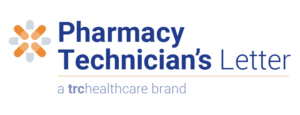$2,860 / year
Earn up to 17.5 hours of ACPE-accredited CE
Group Purchases
Request more information about our enterprise solutions and clinical resources from TRC Healthcare.
Program Overview
This training program delivers high-quality, cost-effective education to pharmacy personnel and leaders while covering environmental monitoring requirements, incubation and reading samples, interpreting final results, and more.
Participants can complete content at their own pace over 12 months from the date of purchase. This includes the option to choose when they attend their required live webinar session.
Participants will have the option to select between one of the following 2025 dates to attend the live webinar, All About Sampling (11a-2p PT), and earn 3 hours of live credit from this virtual training:
- Wednesday, April 9, 2025
- Monday, August 4, 2025
- Monday, October 20, 2025
Participants will earn up to 17.5 hours of ACPE-accredited CE, including the 3 live credits, 8.5 hours of on-demand webinars, and 6 hours of interactive CE. Content includes lively discussions as well as practical learning exercises that simulate real-life work scenarios.
Course Curriculum
Overview of Environmental Monitoring (1 hr ACPE credit)
Learn about essential components of an environmental monitoring program, including processes for viable air and surface sampling.
Viable Air and Surface Sampling (1 hr ACPE credit)
Review viable air and surface sampling and the correct sequence for these as part of an overall engineering monitoring program.
Investigation and Remediation of Viable Environmental Monitoring and Personnel Sampling Excursions (2 hr ACPE credit)
Learn about common microorganisms in sterile compounding environments and how to investigate, document, and remediate a microbial excursion.
Hand Hygiene and Garbing for Sterile Compounding (1 hr ACPE credit)
Review requirements for hand hygiene and the use of garbs when performing sterile compounding.
Best Practices for USP 797 Material Handling (1 hr ACPE credit)
Learn about proper material handling and its role in reducing the bioburden introduced into the primary and secondary engineering controls (PECs and SECs)
Choosing a Laboratory (USP 797) (0.5 hr ACPE credit)
Learn specific regulatory features and quality characteristics when choosing a suitable laboratory vendor.
Creating an Effective and Compliant Environmental Monitoring Program (USP 797) (0.75 hr ACPE credit)
Learn about critical aspects of creating a robust, effective environmental monitoring program.
Developing a Sampling Plan (USP 797) (0.75 hr ACPE credit)
Master the steps of sampling plan development while considering locations that pose the greatest risk to the CSP.
Investigation and Remediation (USP 797) (1 hr ACPE credit)
Explore investigation and remediation strategies and how they support a successful environmental monitoring program.
Trending Environmental Monitoring Data (1 hr ACPE credit)
Discover the importance of trending and how the data benefits the overall EM program.
General Concepts of Environmental Monitoring (1 hr ACPE credit)
Acquire the fundamental concepts of creating and maintaining an environmental monitoring program.
Air and Surface Sampling Technique (USP 797) (1 hr ACPE credit)
Receive a practical understanding of performing viable air and surface sampling.
USP 797 Garbing and Best Practice for Donning Sterile Gloves (1 hr ACPE credit)
Learn about garbing requirements and tools to master donning sterile gloves for nonhazardous sterile compounding.
USP 797 Sampling Session Workflow (0.75 hr ACPE credit)
Explore critical elements of performing an environmental monitoring sampling session and documentation for laboratory submission.
Incubation and Reading Samples (USP 797) (0.75 hr ACPE credit)
Review the required incubation parameters and learn proper methods of analyzing growth on sample plates.
All About Sampling (3 hr live, ACPE credit)
Learn about sampling requirements, including best practices for collecting and reading samples.
Training Objectives
Get Extensive Environmental Monitoring Education. Receive a comprehensive education on developing an environmental monitoring program to gain the ability of insource testing for your facility.
Drive Pharmacy Results With Advanced Expertise. Deepen your understanding of environmental monitoring requirements, from developing and executing meaningful air and surface sampling to analyzing and interpreting the final results.
Receive High-Quality Instruction. Strengthen your environmental monitoring knowledge while learning from true subject matter experts and covering topics such as incubation and reading samples, choosing a laboratory, and trending environmental data.
Additional Training Benefits
- Level of Expertise. Those who attend the virtual training should already have mastered hand hygiene and garbing since those skills will not be taught but will be required to know for this training event.
- Training Content. Theoretical and scientific underpinnings will be communicated through engaging lectures and will ensure that participants have the opportunity to test what they’ve learned as well as practice and master skills within the virtual training environment.



